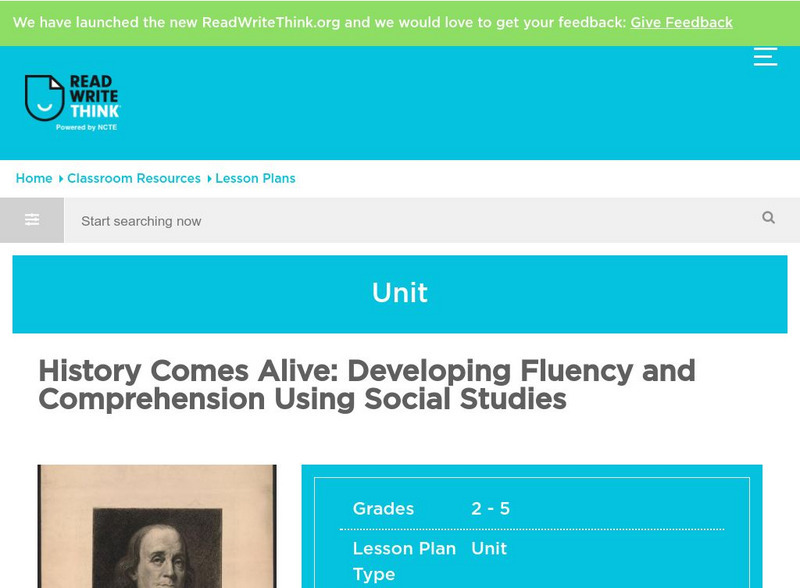Curated OER
You Have Nerve!
Fourth graders investigate the nervous system and how it communicates messages to and from the brain.
Curated OER
Testing Battery Combinations
Fourth graders examine the required combinations of plates and predict which combination will generate the most and least current and voltage. They use an ammeter and experiment with combinations of their own testing and record each...
Curated OER
Documenting Where We Are
Students contribute to discussions and identify how an artist elicits a viewer's response. They use William Henry Jackson's Pawnee Indian Village, photograph and painting. After analyzing this information, students use information gained...
Curated OER
Pi Day (March 14)
Fourth graders determine the value of ? by measuring the circumference and diameter of circular objects such as soup cans, Oreo cookies, etc..
Curated OER
Secrets from the Sea
Students utilize technology for research. They research the potential causes of the sinking of the Hunley.
Curated OER
Afghanistan and The Breadwinner
Students examine the use of the Hindu Kush mountains by explorers and traders. Using Afghanistan as an example, they research how different events can effect human settlerment patterns. They discuss how the physical characteristics of...
Curated OER
A Tale of Two Cranes How Do Wild and Costume-raised Whoopers Compare?
Students explore what young cranes need to do to survive.
Curated OER
Don't Throw Away That Junk Mail!
Fourth graders study junk mail to learn the techniques that advertisers use to attract and hold a person's attention.
Curated OER
Understanding A Culture Through Storytelling
Students explore Japanese folk tales and create a performance that tells one of the Japanese folk stories.
Curated OER
Inventors Unit Survey
Students develop and conduct a survey for their inventors unit. They create a five question survey and tally the survey results, and create a graph using Microsoft Word and Graph Club 2.0.
Other
Peoples Education: Make Inferences in Science [Pdf]
This online textbook selection focuses on how scientists make inferences from evidence. Students are given a reading passage about underwater exploration and are asked to make inferences based on the text. The passage is followed by...
Austin Independent School District
Austin Independent School: 10 Major Types of Inference in Literature [Pdf]
This printable worksheet helps students recognize the difference between an implication and an inference. Students are presented with quotes from the text and they practice with each of the ten types of inference: location, agent, time,...
E Reading Worksheets
E Reading Worksheets: Making Predictions Worksheets and Lessons
In this learning module, students will learn more about making predictions in reading. Worksheets and a leson are provided to support Tier I, Tier II, and Tier III students.
E Reading Worksheets
E Reading Worksheets: Fact and Opinion Worksheets
Fact and opinion practice exercises, answer sheets, and explanation summaries are included on this tutorial site. Worksheets are tiered in levels of difficulty.
E Reading Worksheets
E Reading Worksheets: Inferences Worksheets
In this learning module, students will learn more about making inferences. Worksheets are provided to reinforce the skill of making inferences. This module is designed to support Tier I, Tier II, and Tier III students.
TES Global
Tes: Coraline 5 Reading Assessment
[Free Registration/Login Required] This lesson plan provides a way to assess students' understanding of inferences about the traits of characters in the Neil Gaiman's novel Coraline.
E Reading Worksheets
E Reading Worksheets: Implicit Character Traits Worksheet
In this learning module, students will practice making inferences about character traits. A worksheet is provided to practice with finding implicit character traits. This module is designed to support Tier I, Tier II, and Tier III students.
Florida Center for Reading Research
Florida Center for Reading Research: Text Analysis: Incredible Inferences [Pdf]
A lesson plan in which students play a game to cover words on a game board by making inferences. Materials are included.
Florida Center for Reading Research
Florida Center for Reading Research: Text Analysis: Inference Innovations [Pdf]
A lesson plan in which students read a text and use a graphic organizer to make inferences. Materials are included.
Read Works
Read Works: Drawing Conclusions 3rd Grade Unit
[Free Registration/Login Required] A two-lesson unit on drawing conclusions through which young scholars learn how to recognize the difference between implicit information and drawing conclusions. Students also learn to draw conclusions...
Read Works
Read Works: Predicting 3rd Grade Unit
[Free Registration/Login Required] This is a instructional activity designed to teach students to make predictions based on relationships between characters. The instructional activity is based on the book Soupy Saturdays with the Pain...
Read Works
Read Works: Fourth Grade: One Lesson Unit: Drawing Conclusions
[Free Registration/Login Required] Learners are guided through a lesson plan to understand the difference between explicit information and conclusions drawn from a text. With free login, users have access to passages used in this lesson...
Scholastic
Scholastic: Test Skill Builders for Reading: Making Judgments [Pdf]
Standardized test practice for students in grades 5 and 6. Students read a practice passage and answer questions that require them to make judgments about such things as fact or opinion and the author's purpose. Answers to the practice...
ReadWriteThink
Read Write Think: History Comes Alive: Developing Fluency and Comprehension
Let the power of imagination and inference serve as a "time machine" to bring Benjamin Franklin into the classroom! History and science come to life in a dialogue with Franklin the inventor, developed through lesson activities that...


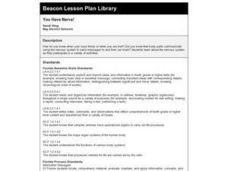


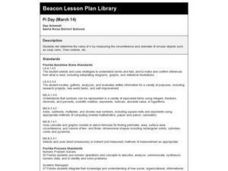


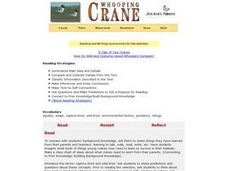

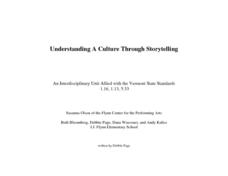

![Peoples Education: Make Inferences in Science [Pdf] eBook Peoples Education: Make Inferences in Science [Pdf] eBook](https://d15y2dacu3jp90.cloudfront.net/images/attachment_defaults/resource/large/FPO-knovation.png)

![Florida Center for Reading Research: Text Analysis: Incredible Inferences [Pdf] Lesson Plan Florida Center for Reading Research: Text Analysis: Incredible Inferences [Pdf] Lesson Plan](https://content.lessonplanet.com/knovation/original/509092-1f8464bfd22060486a7ced8fa8c4310e.jpg?1661786985)
![Florida Center for Reading Research: Text Analysis: Inference Innovations [Pdf] Lesson Plan Florida Center for Reading Research: Text Analysis: Inference Innovations [Pdf] Lesson Plan](https://content.lessonplanet.com/knovation/original/509090-40e85c5bfbfa31dce3d470a549282f99.jpg?1661786988)

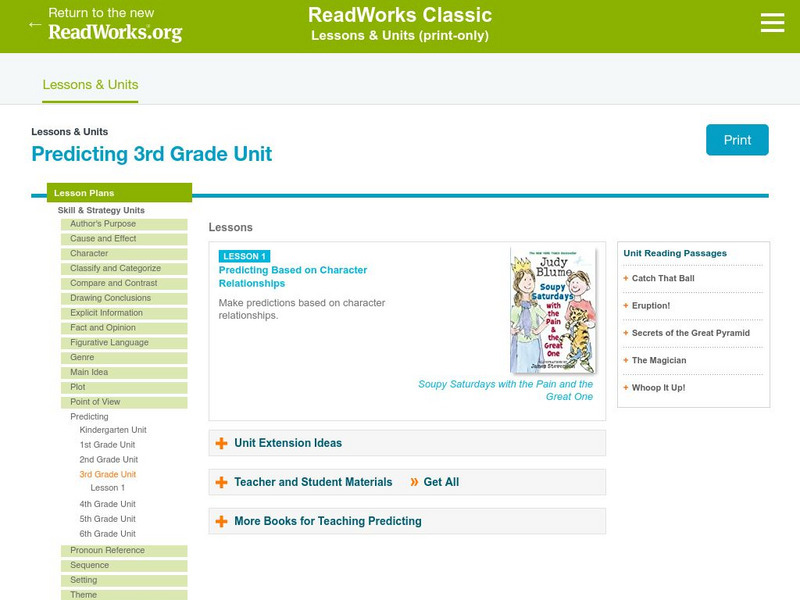

![Scholastic: Test Skill Builders for Reading: Making Judgments [Pdf] Unit Plan Scholastic: Test Skill Builders for Reading: Making Judgments [Pdf] Unit Plan](https://content.lessonplanet.com/knovation/original/480321-6f12644c5ef0c583c0ed15abcd563c89.jpg?1661251115)
